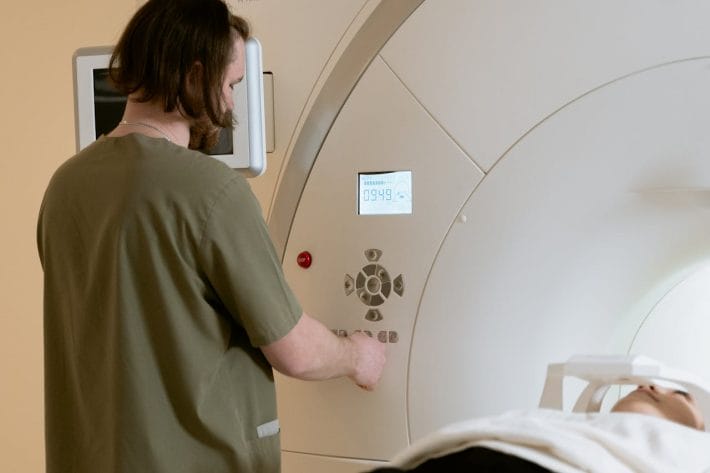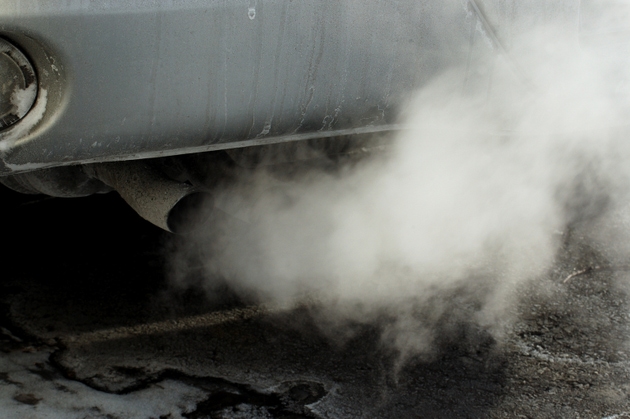The One Big Beautiful Bill Act (OBBBA) significantly alters the InflationInflation is when the general price of goods and services increases across the economy, reducing the purchasing power of a currency and the value of certain assets. The same paycheck covers less goods, services, and bills. It is sometimes referred to as a “hidden tax,” as it leaves taxpayers less well-off due to higher costs and “bracket creep,” while increasing the government’s spending power.
Reduction Act (IRA) green energy subsidies.
The IRA green energy subsidies were flawed to begin with. They provided less effective incentives to reduce carbon emissions than a straightforward carbon taxA carbon tax is levied on the carbon content of fossil fuels. The term can also refer to taxing other types of greenhouse gas emissions, such as methane. A carbon tax puts a price on those emissions to encourage consumers, businesses, and governments to produce less of them.
. But even within the subsidy framework, the taxA tax is a mandatory payment or charge collected by local, state, and national governments from individuals or businesses to cover the costs of general government services, goods, and activities.
credits were complicated. The IRA created a two-track system where many credits were only available if certain labor requirements were met, or if projects were located in specific areas or used domestic materials.
Given the escalating fiscal cost—approximately $1 trillion over the next decade—the case for repealing, or at least paring back, the IRA tax credits was strong. In addition to the price tag, the IRA tax credits violated two of Tax Foundation’s principles of sound tax policy: simplicity and neutrality. Repealing some of the tax credits outright satisfies both principles. And OBBBA certainly delivers on that, at least for many consumer-focused credits.
However, the OBBBA’s approach to many of the tax credits, particularly those claimed by businesses, adds more complexity. The law also ends up expanding, rather than shrinking, several credits.
Big Picture
The changes to the IRA tax credits can be split into three categories: straightforward repeals to mostly consumer-focused credits related to electric vehicles and buildings, more complex phaseouts and restrictions for power generation and other business-related credits, and expansions to the clean fuel and carbon oxide sequestration credits.
OBBBA’s Changes to Inflation Reduction Act Credits Should Raise $484.5 Billion over Next Decade
10-Year Conventional Revenue Estimates, 2025-2034
Source: Tax Foundation Taxes and Growth Model, July 2025, except for scores for the clean fuel production credit, carbon oxide sequestration credit, and advanced manufacturing production credit, for which we relied upon Joint Committee on Taxation estimates.
Repeal of Consumer Credits
The OBBBA repeals several tax provisions related to electric vehicles and buildings. Repealing the electric vehicle and refueling property taxA property tax is primarily levied on immovable property like land and buildings, as well as on tangible personal property that is movable, like vehicles and equipment. Property taxes are the single largest source of state and local revenue in the U.S. and help fund schools, roads, police, and other services.
credits raises almost $200 billion over the next decade, while repealing the other residential-related tax breaks brings the total for this category of provisions to $267 billion, according to Tax Foundation estimates.
OBBBA Fully Repeals Credits Related to Electric Vehicles, Buildings
Source: H.R.1 – One Big Beautiful Bill Act, https://www.congress.gov/bill/119th-congress/house-bill/1/text.
These repeals are straightforward and justified. Even though they are quite generous, EV credits typically do not move the needle for EV purchases. Evidence suggests most EV credit recipients would have purchased an EV without the subsidy. Accordingly, the EV credits are expensive relative to the reduction in CO2 emissions they provide. The evidence for home energy property and energy efficiency tax credits shows a similarly high cost relative to emissions mitigation. Both credits also typically skew toward higher-income households.
Repeal, Phaseout, and Restriction of Business Credits
The OBBBA’s approach to electric power credits is much more complicated. The law makes wind and solar projects ineligible for the IRA’s flagship tax credits (the clean electricity investment tax creditA tax credit is a provision that reduces a taxpayer’s final tax bill, dollar-for-dollar. A tax credit differs from deductions and exemptions, which reduce taxable income rather than the taxpayer’s tax bill directly.
[ITC] and production tax credit [PTC]) unless they either enter service before December 31, 2027, or begin construction within 12 months of the law’s passage.
New geothermal, nuclear, hydroelectric, or battery storage (including battery storage associated with wind and solar power) retain eligibility for these credits, effectively transforming the credits from being for all zero-emission electricity to all zero-emission electricity generation capable of providing baseload power. The law repeals the clean hydrogen production tax credit after 2027 and makes several changes to eligibility for the advanced manufacturing production tax credit.
The law also introduces restrictions on foreign entities of concern, or FEOC. While the exact rules vary for different credits, FEOC rules target the involvement of individuals or organizations associated with certain adversarial nations (Russia, China, North Korea, or Iran), but China will be the relevant country in most cases. For some credits, the FEOC restrictions only apply to prevent foreign entities—think a Chinese state-owned enterprise—from claiming credits or directly influencing organizations claiming credits. For other credits, particularly the 45Y and 48E electricity credits, the FEOC restrictions extend to include “material assistance,” barring use of the credits if a certain share of a project’s physical inputs originate from those foreign countries.
OBBBA Restricts, Limits, or Phases Out Several Major Green Energy Business Credits
Source: H.R.1 – One Big Beautiful Bill Act, https://www.congress.gov/bill/119th-congress/house-bill/1/text
Cutbacks to these power sector credits make sense as a way to broaden the corporate tax baseThe tax base is the total amount of income, property, assets, consumption, transactions, or other economic activity subject to taxation by a tax authority. A narrow tax base is non-neutral and inefficient. A broad tax base reduces tax administration costs and allows more revenue to be raised at lower rates.
. These credits have become more expensive than originally estimated. At the same time, while initial projections suggested the clean electricity ITC and PTC were the most efficient IRA credits in terms of emissions reduced per dollar of fiscal cost, more recent emissions data on the electricity sector suggest the credits have underdelivered, at least within the first few years (admittedly a short period of time to assess the impact of the tax credits on projects that take years to complete).
On the other hand, the savings are achieved in part through making the credits more difficult to comply with. The law’s new FEOC restrictions, while clearer than the initial House version, will be challenging—particularly the material assistance requirements attached to the ITC and PTC.
Even setting those new compliance challenges aside, the retained credits keep the IRA’s unnecessarily complex structure. Tax credits like 45Y and 48E still feature the two-tier system, where the credit is effectively eliminated unless companies meet prevailing wage and apprenticeship requirements. They also still feature bonuses for projects in designated low-income or “fossil fuel” communities—in fact, OBBBA creates a new bonus credit for projects in “nuclear communities.”
Credit Expansions
The OBBBA also expands a few IRA tax credits. It extends the clean fuel production credit (one of the least defensible IRA credits from a climate perspective) until the end of 2029, and relaxes the lifecycle greenhouse gas emissions rules required to qualify for it. The law also raises the carbon oxide sequestration credit for sequestered CO2 used in enhanced oil recovery to match the rate applied to geologically sequestered CO2 and introduces a 2.5 percent tax credit for costs associated with the production of metallurgical coal under the auspices of 45X.
The cumulative cost of the 45Z and 45Q expansions is roughly $40 billion over 10 years. Counting the metallurgical coal tax credit part of the 45X reforms in this category would slightly boost its costs.
OBBBA Expands Credits for Carbon Capture and Alternative Fuels
Source: H.R.1 – One Big Beautiful Bill Act, https://www.congress.gov/bill/119th-congress/house-bill/1/text.
These expansions, while not particularly large, are unnecessary and inefficient.
The Long View
The IRA green energy tax credits were born of a particular understanding of political economy that said climate change had to be addressed with subsidies rather than carbon pricing. Under this theory, the subsidies would create new constituencies to support climate action and, accordingly, prove resilient to political challenges. This theory has been mugged by reality.
Carbon pricing remains a better climate policy than green energy subsidies, one that is both more efficient and fiscally sustainable. Now that the political economy argument for green energy subsidies has seen a sharp rebuke, it would make sense for climate advocates to reconsider their abandonment of carbon pricing as a policy option.
That is particularly true considering the OBBBA’s overall impact on the deficit. Even though the OBBBA raises the deficit on net, the bill still needed some offsets, and the IRA tax credits were a major source of them on the tax side. With deficits rising unsustainably, policymakers should consider climate policy that can also reduce deficits.
Stay informed on the tax policies impacting you.
Subscribe to get insights from our trusted experts delivered straight to your inbox.
Subscribe
Share this article


























